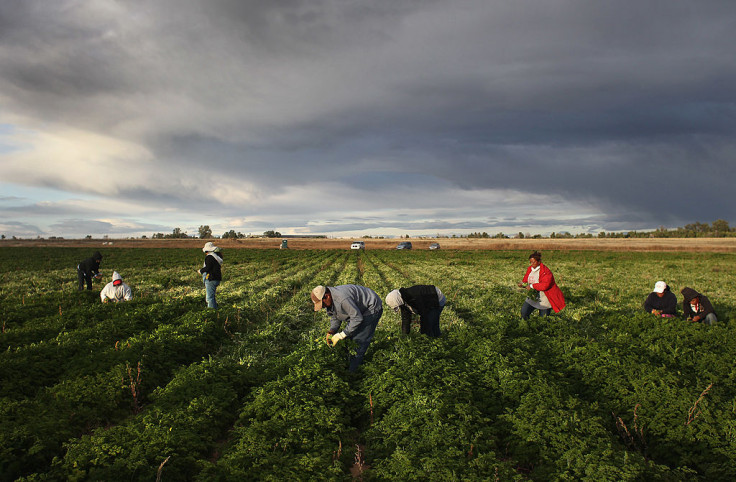Trump's Immigration Crackdown Hits Food Banks and Low-Income Produce Distributors in California
One San Diego food bank told Border Report it is seeing a sharp decline in produce supply compared to early 2025

Owners and operators of food banks and low-income produce distribution sites across the country are reporting smaller selections and lower-quality fruits and vegetables. Many attribute the issue to a growing shortage of farmworkers, which they say is being driven by recent Immigration and Customs Enforcement (ICE) raids that have disrupted harvests and strained supply chains.
A report published earlier this month by Economic Insights and Research Consulting estimates that the U.S. workforce has lost as many as 1.2 million foreign-born workers since January 2025. The report links the shortage to gaps in farm labor and other key industries, which has slowed harvests and reduced the amount of produce available to food banks.
In San Diego, one local food bank is already feeling the effects. As reported by Border Report, volunteers say they've seen a noticeable decline in the quantity of produce available. While they did not directly link the shortage to immigration enforcement, the timing coincides with a recent uptick in ICE operations in the region.
The labor shortage is especially severe in California, where the Trump administration has escalated immigration enforcement in recent weeks, specifically targeting farmworkers.
In June, The Latin Times reported that growers in Ventura County — a major agricultural hub north of Los Angeles — lost up to 70 percent of their field laborers following a surge in ICE raids. As a result, crops have been left unharvested, and many growers are struggling to meet demand.
At a small produce store serving low-income families in San Diego, the impact is already visible. According to the store owner who talked to Border Report, fruits and vegetables arriving to his store in recent weeks are often overripe, damaged, or already spoiled.
The man also noted that prices are rising due to the inconsistent supply, which is pushing away customers who can no longer afford the basics.
"We're having fewer customers coming in," he told Border Report, adding that shortages and higher costs are likely to continue as long as immigration raids disrupt the labor force.
As farmers and immigration advocates continue raising their concerns about labor disruptions created by immigration raids, President Donald Trump said in June that his administration was working to develop a temporary pass for undocumented immigrants who work in certain industries —including agriculture— that would allow them to remain in the U.S. under employer sponsorship.
"We're working on it right now. We're going to work it so that some kind of a temporary pass where people pay taxes, where the farmer can have a little control, as opposed to you walk in and take everybody away," Trump said in an interview with Fox News.
Critics warn the administration's inconsistent policies risk undermining food security.
"These deportations and this cruelty... it's going to get to the point that we're all going to feel the pain," said United Farm Workers President Theresa Romero to the LA Times. "We're not going to find what we want and what we need, and whatever we find is going to be a lot more expensive."
Originally published on Latin Times
© Latin Times. All rights reserved. Do not reproduce without permission.




















